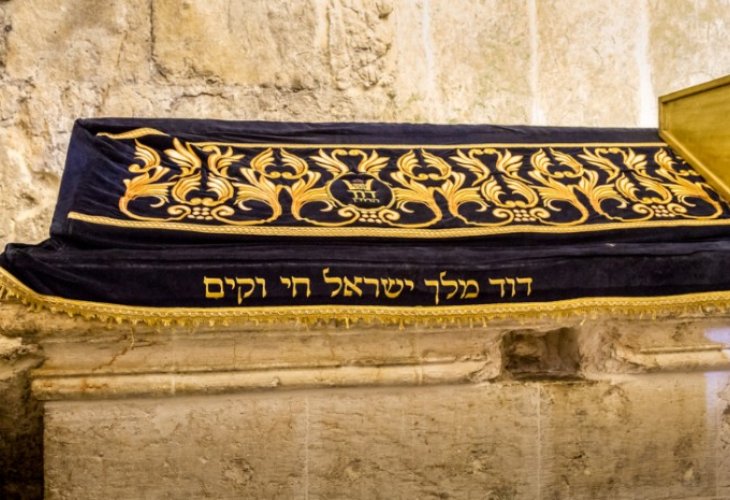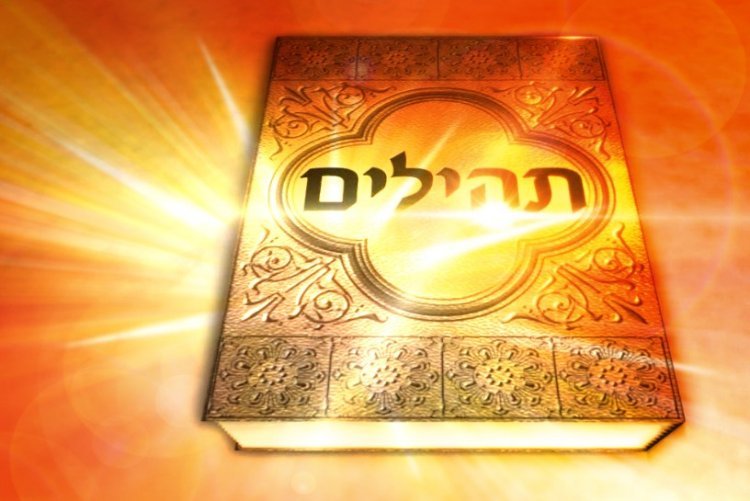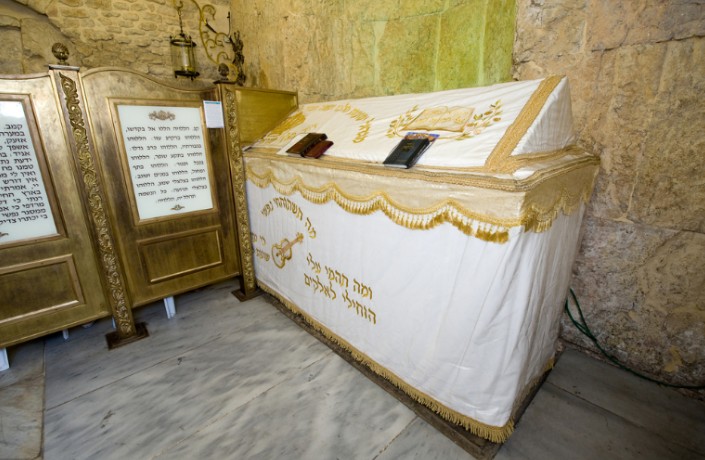Torah Personalities
King David: His Miraculous Birth, Humility, Suffering, and Eternal Song
The true story, struggles, and spiritual greatness of King David
 King David (Photo: Flash 90)
King David (Photo: Flash 90)David Hamelech (King David) who we know as one of our greatest leaders, was in fact destined to be born as a nefel (a stillborn), and to live only for three hours. Adam HaRishon, who recognized the profound spiritual nature and eternal mission of this soul, asked God to grant David life, and Adam gifted him 70 years of his own lifespan.
David’s father, Yishai, was one of the few people in history who never sinned. David’s mother, Nitzvet bat Adael, was a great righteous woman. According to Pachad Yitzchak, saying her name 17 times is a spiritual segulah: Whoever mentions the name ‘Nitzvet bat Adael, mother of King David,’ seventeen times — their prayer is answered.
Because David’s father descended from Ruth the Moabite, there was a long-standing doubt about whether his children were permitted to marry into the Jewish people. For decades, David’s brothers ostracized him and considered him illegitimate.
Lifetime of Suffering and Rejection
From the day of his birth until the day of his death, David suffered pain, troubles, and afflictions. Yet he accepted them all with love.
David describes his loneliness: “I was a stranger to my brothers, a foreigner to my mother’s sons.” Although he had siblings and lived in Bethlehem with them, he alone — their own flesh and blood, was considered a stranger.
He fasted, wept, and wore sackcloth, but even this did not change their view of him.
People debated at the city gates whether he was permitted or forbidden to marry, since he descended from Ruth the Moabite. Although the halacha had already been ruled three generations earlier — “A Moabite man is forbidden, but not a Moabite woman”, the dispute resurfaced, and David was spoken about endlessly.
Worse still, drunkards in the streets wrote mocking songs about him:
“The songs of drunkards speak about me.”
 King David
King DavidThe Anointing of David by Samuel the Prophet
God commanded Shmuel (Samuel the Prophet) to go to the house of Yishai to anoint one of his sons as king — but He did not specify which son.
When Shmuel saw Yishai’s eldest, Eliav — tall, handsome, righteous, and learned, he assumed this must be the next king. But God said: “Do not look at his appearance or his height… Man sees with the eyes, but God sees into the heart.”
Although Eliav appeared impressive, he was rejected because of his character traits. Chazal teach that a person who becomes angry forfeits greatness decreed for him from Heaven. When David later arrived at the battlefield with Goliath, it says: “Eliav’s anger flared against David.” He also displayed jealousy and arrogance when he rebuked David harshly.
Shmuel tried to anoint each of the seven sons of Yishai, but the oil miraculously withdrew each time.
Shmuel asked, “Are all the boys here?”
Yishai replied, “The little one remains.”
Although David was 28 years old at the time, he made himself small and humble — like leftover scraps.
When David arrived, described as: “Ruddy, with beautiful eyes and handsome appearance,” Shmuel feared that his redness might indicate bloodshed. But God said: “Arise and anoint him, for this is he!”
The oil suddenly rushed on its own and poured onto David’s head, forming drops that shone like precious stones — yet the jug remained miraculously full.
The Noble Traits of King David
Humility
Because David humbled himself, he merited greatness. The Zohar teaches: Whoever lowers himself before God — God raises him above all. David always recognized God’s presence in every step of life.
Divine Inspiration
From the moment he was anointed, Ruach HaKodesh rested upon him: “And the Spirit of God rested upon David from that day forward.” Through this divine inspiration, David composed the Book of Tehillim. At the same time, King Shaul began to lose his spiritual stature.
David was reddish, like Eisav — but unlike Eisav, who lived by the sword, David’s battles were fought only according to Torah law, and only for the sake of God. He was “reddish” and had “beautiful eyes” — representing Torah wisdom and purity.
Strength and Sensitivity — “Adino HaEtzni”
Chazal explain that David had two opposite strengths:
In battle, he hardened himself like wood.
In Torah, he softened himself like a worm — humble, gentle, and refined.
Shepherd of Israel
David’s devotion as a shepherd demonstrated his compassion, humility, and responsibility. God said: “He who is faithful to sheep is worthy of shepherding My people.”
Humility is valued as if one offered all the sacrifices, as it says:
“The sacrifices of God are a broken spirit.”
David said of himself: “But I am a worm and not a man.” This was not self-deprecation, but deep humility before God.
The Book of Tehillim — David’s Eternal Song
In the Talmud, David says: “I shall dwell in Your tent forever.”
“Forever” refers to both this world and the next.
David asked God that when people recite Tehillim after his death, his lips should “move in the grave,” teaching merit on behalf of Israel. Thus, every time Tehillim is recited, David’s soul is awakened.
The Zohar teaches that all Torah words uttered in this world remain in the air of the universe forever. When you study Torah or say a teaching in someone’s name, your voice joins theirs — and the righteous become spiritually “alive.”
David merited becoming “alive and enduring” because his Tehillim are recited nonstop throughout the Jewish world — in prayer, in joy, in sorrow, at the Kotel, in synagogues, at graves of the righteous, during illness, at celebrations, and more.
 King David (Photo: shutterstock)
King David (Photo: shutterstock)Reward of Reciting Tehillim
David asked God that the one who recites Tehillim receive the reward of someone who studies the most complex areas of Torah.
According to the Ari HaKadosh:
Sometimes Tehilim functions as Torah,
Sometimes as prayer,
Yet in both cases, the person receives the reward of Torah learning.
The five books of Tehillim correspond to the Five Books of the Torah — a revelation of the song embedded in the Torah itself, inherited from Ruth.
The Passing of King David
The Talmud teaches that David asked God to reveal his day of death. God said he would die on Shabbat.
Every Shabbat, David learned Torah all day so the Angel of Death could not touch him.
When his final Shabbat arrived — which was also Shavuot, the anniversary of his birth — the Angel of Death shook the trees behind his house. David paused learning for a moment and stepped outside. As he climbed a staircase, a step broke beneath him, he fell, and his soul departed.
His body lay in the sun until Shlomo summoned eagles to spread their wings above him for shade.
David was born and died on Shavuot, the day of the giving of the Torah. On this day, it is customary to recite the entire book of Tehillim.
Just as his life began and ended with Torah, so too all his praises, battles, and songs were an expression of Torah.

